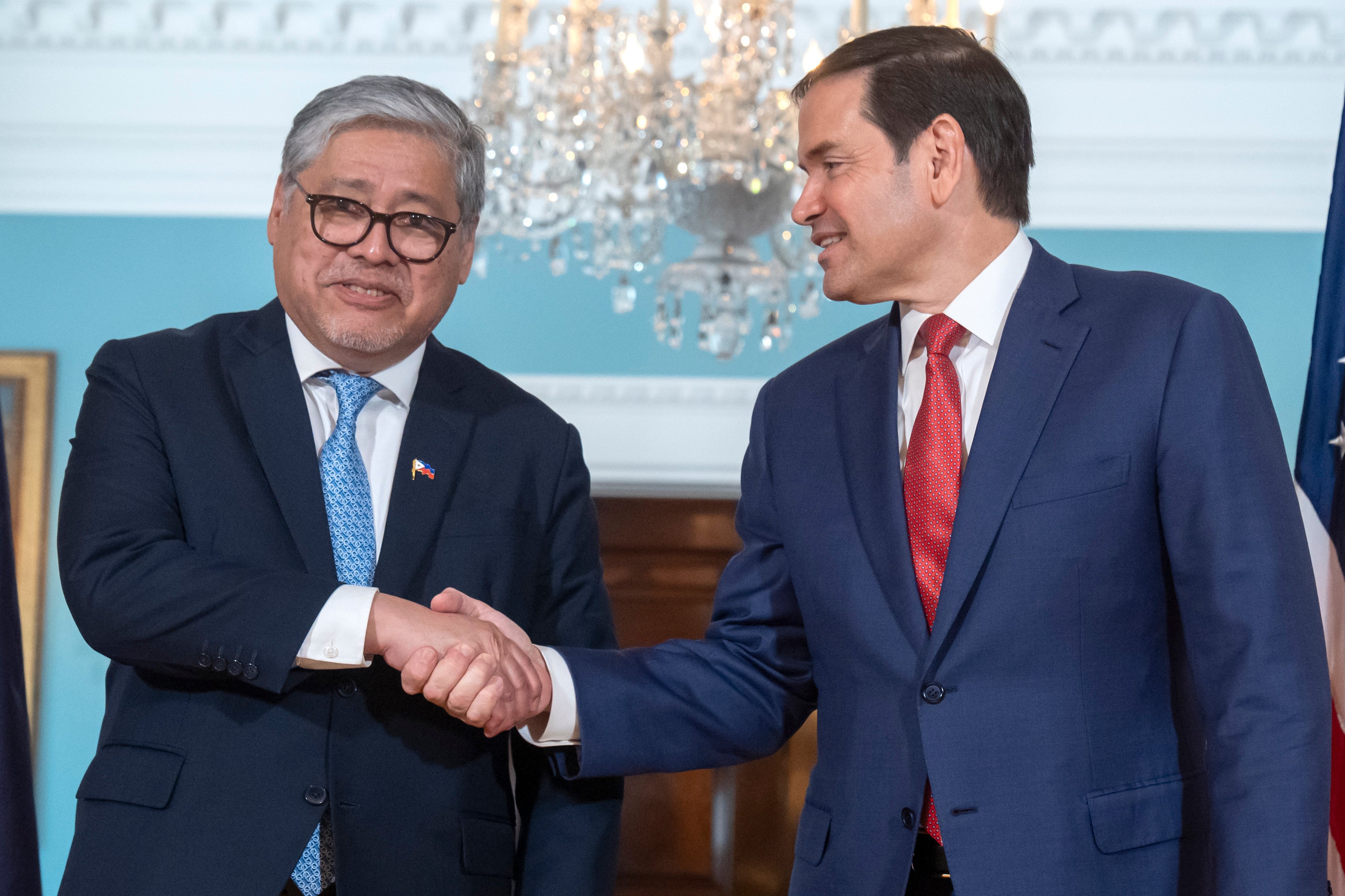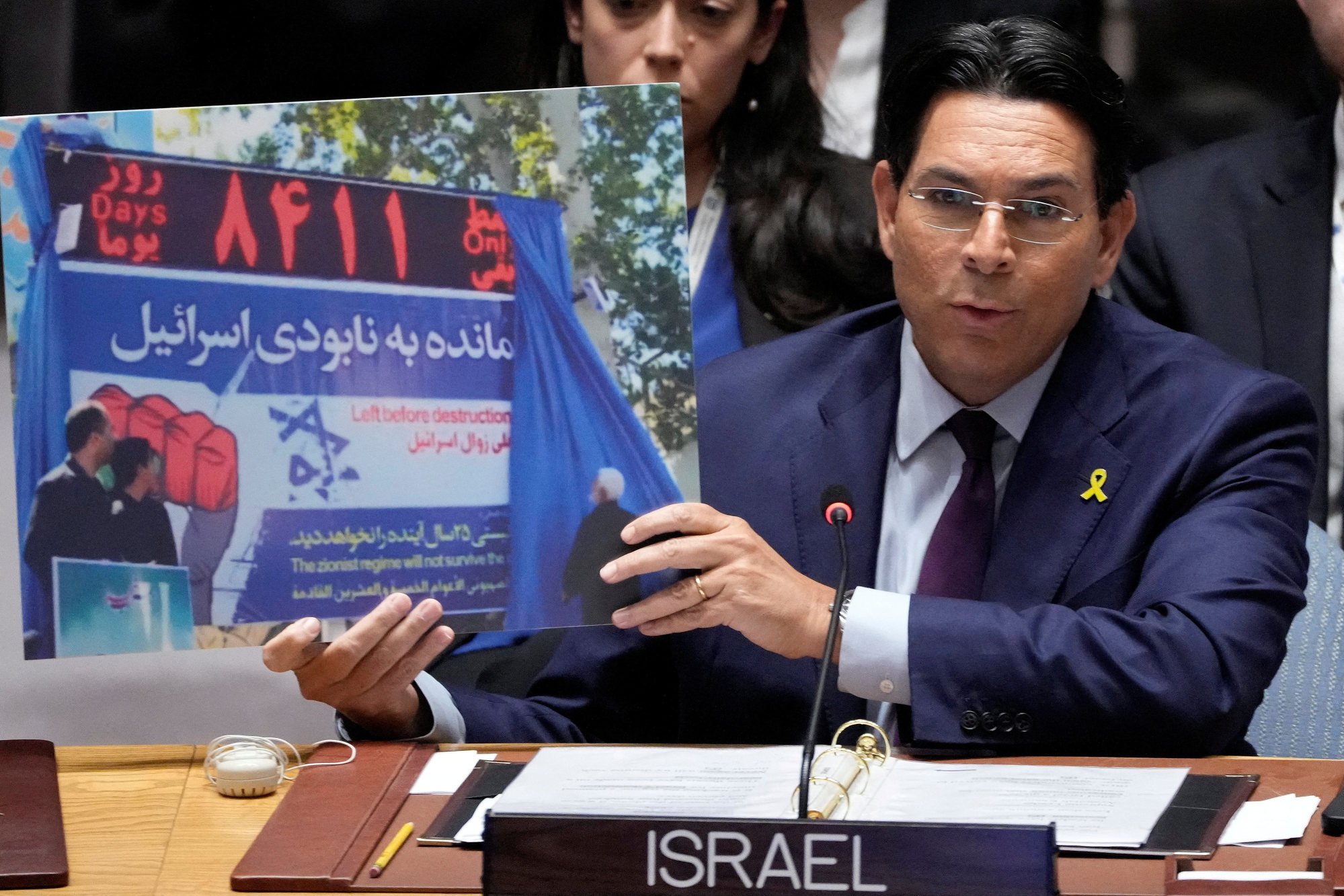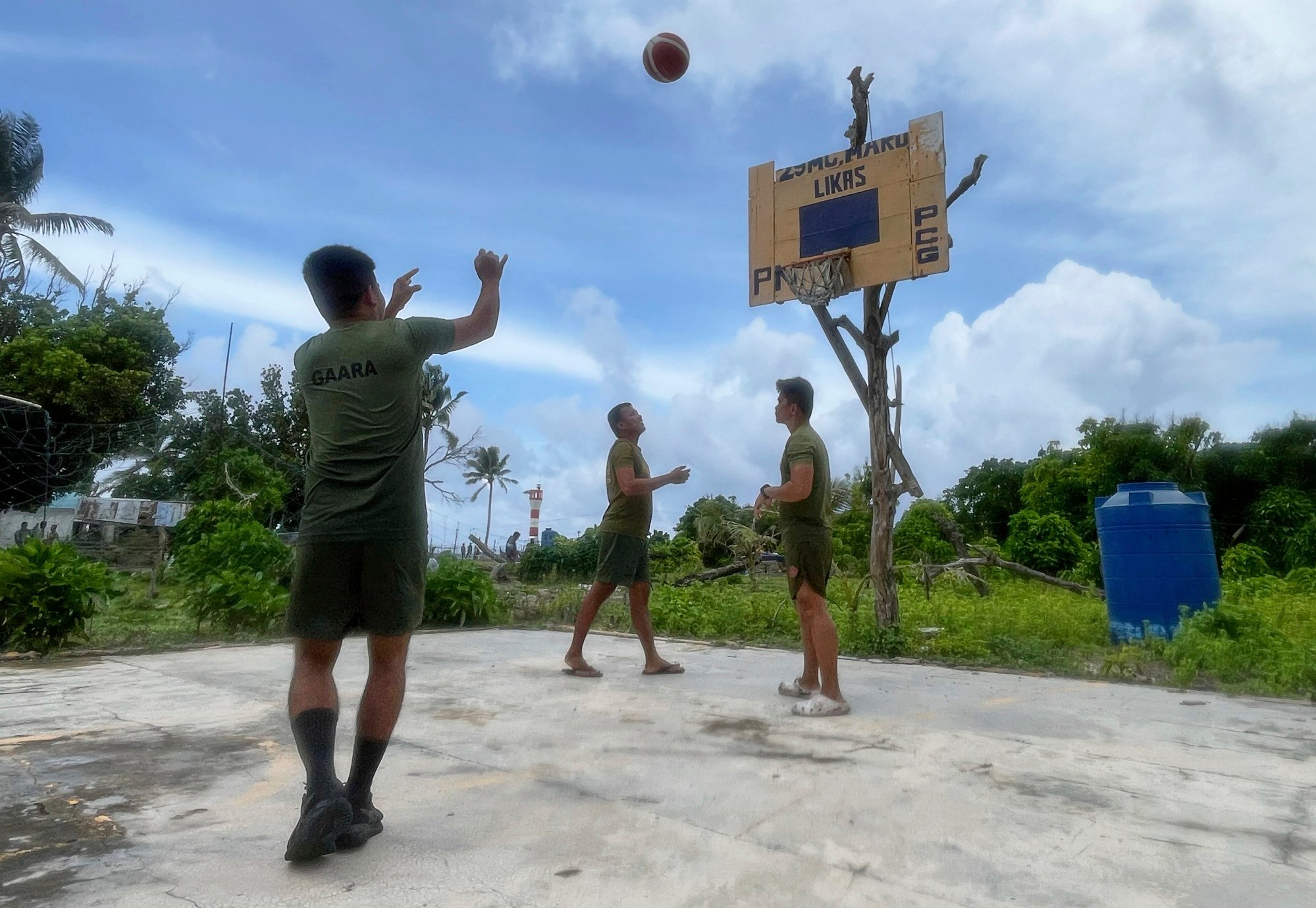Why a UN Security Council seat is ‘crucial’ to the Philippines
Manila is hoping for a bigger say in global conflict resolution and its South China Sea dispute with Beijing

The Philippines has a strong chance of gaining a non-permanent seat on the United Nations Security Council (UNSC), according to observers. Manila has renewed its bid, with its foreign secretary stressing the country’s track record as a “pathfinder and peacemaker”.
Foreign Affairs Secretary Enrique Manalo reiterated the Philippines’ UN aspirations in a speech in New York earlier this week to more than 300 diplomats and guests at his country’s Independence Day celebrations.
He pointed to the country’s role as Asia’s first republic, its long-standing dedication to equality among nations, as well as its commitment to multilateralism and global peace.
“The Philippines will bring to the Security Council 80 years of multilateral experience, a tradition of principled diplomacy, and a readiness to listen, engage, and lead with purpose,” Manalo said in his keynote speech at a diplomatic reception at the Philippine Centre on Sunday.
The UNSC comprises five permanent members and 10 elected ones that serve a two-year term. It is primarily responsible for maintaining international peace and security in accordance with the UN Charter.

Manalo said the Philippines “wishes to harness our track record and the trust and goodwill we enjoy with UN member states as we work with all states in advancing the principles and our common purpose in the UN Charter”, adding that the country would “uphold the UN Charter with sincerity and resolve”.
“We stand for multilateralism that does not retreat in the face of challenge, crisis and fragmentation. Amidst turmoil or paralysis, we seek solutions, we seek new milestones, we persevere in reaching common ground,” he said.
In recent years, the country has ramped up its efforts to seek other nations’ support for a council seat for the 2027-28 term. It campaigned on the sidelines of the UN General Assembly in New York in September and, at a New Year’s Day presidential dinner reception, President Ferdinand Marcos Jnr urged diplomats to back Manila’s bid.
The Philippines has earned a seat on the council four times: in 1957, 1963, 1980-1981, and 2004-2005.
‘A crucial campaign’
Observers say the Philippines’ ambition to be part of the UNSC is a “crucial campaign” for its diplomatic strategy.
“The Philippines’ bid to become a member of the powerful UN Security Council for the fifth time is a very crucial campaign at this juncture,” Gary Ador Dionisio, dean of the De La Salle – College of Saint Benilde’s School of Diplomacy and Governance, told This Week in Asia.
Dionisio said Manila’s status as a middle power in Asia would provide the country “the opportunity and platform to articulate its position on the unfolding global security landscape”, particularly on the wars in Ukraine and Gaza – and now the clashes between Israel and Iran.
“This is a very important [opportunity] for us since at the global level there are millions of Filipinos working in almost all parts of the world. Our membership will somehow give us credence in our position on the [level of] international relations,” he said.
Vincent Kyle Parada, a former defence analyst for the Philippine Navy and a graduate student at the S. Rajaratnam School of International Studies, said the campaign was “the linchpin of Manila’s diplomatic strategy”, as it had been working to shape its disputes with Beijing in the South China Sea as “not only as a national security concern but an international one”.
Manila is looking to place its maritime disputes on the UN agenda in 2027, following its term as Asean chair in 2026.
“If successful, it would provide Manila with successive platforms regionally and globally to actively shape the discourse surrounding China and its attempts to undermine the rules-based international order,” Parada said.
The Philippines could use the council to compel China to explain its actions in the disputed waterway, Dionisio said, “since we are the only country in the region that filed and won a case against China”.
An international arbitration court ruled in favour of the Philippines in 2016 and deemed the Chinese nine-dash line claiming nearly the entire South China Sea as invalid, yet Beijing has refused to acknowledge the decision.
“As one of the five permanent members of the UNSC, China holds veto power and is inclined to use that power against any resolution that threatens its national interests. Manila knows this well enough,” Parada said.
“The Marcos administration sees this as an opportunity to impose reputational costs on China and try to isolate it – or at the very least, its actions in the South China Sea – diplomatically.”

He added that Manalo’s impending move from foreign affairs secretary to the Philippines’ permanent representative to the UN – a post he held previously in 2022 – was a sign of the importance of the country’s membership to the council.
“With its UNSC bid on the horizon, Marcos wants a veteran like Manalo at the helm in New York to navigate its politics and safeguard the Philippines’ national interests,” Parada said.
He also expressed confidence in international support for Manila’s bid, citing the Philippines’ goodwill with the UN and its active participation in peacekeeping and humanitarian missions.
“Votes from the US and other like-minded actors in the Asia-Pacific, including the Asean states, are almost guaranteed. Coupled with a positive reputation and credible track record in the UN, it’s highly likely that the Philippines’ bid will end up successful,” he said.
Dionisio said the Philippines’ membership to the UNSC would also help accelerate the country’s defence and security agreements with like-minded countries.
The Philippines’ reciprocal access agreement with Japan came into full effect in June after Japan’s National Diet ratified the pact.
While China may use its status as a permanent member to campaign against the Philippines’ inclusion, it would depend on the country’s willingness to actively engage in back door lobbying against the Philippines, Dionisio said.
“If this happens, this would only show how the Chinese government is determined to negate our sovereignty rights in the West Philippine Sea,” he said, referring to the Philippines’ exclusive economic zone in the South China Sea.